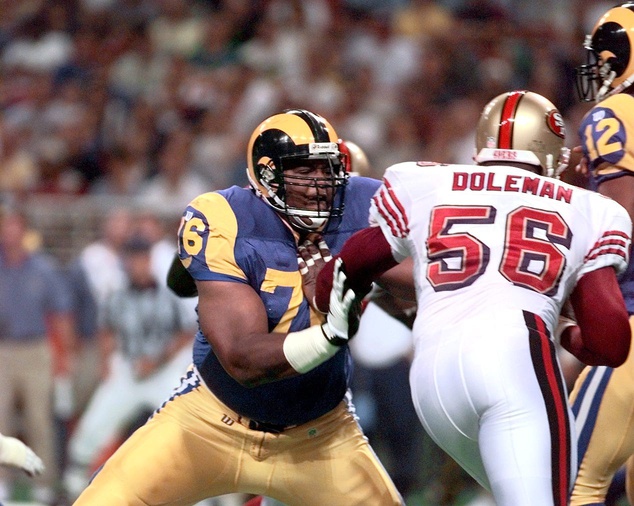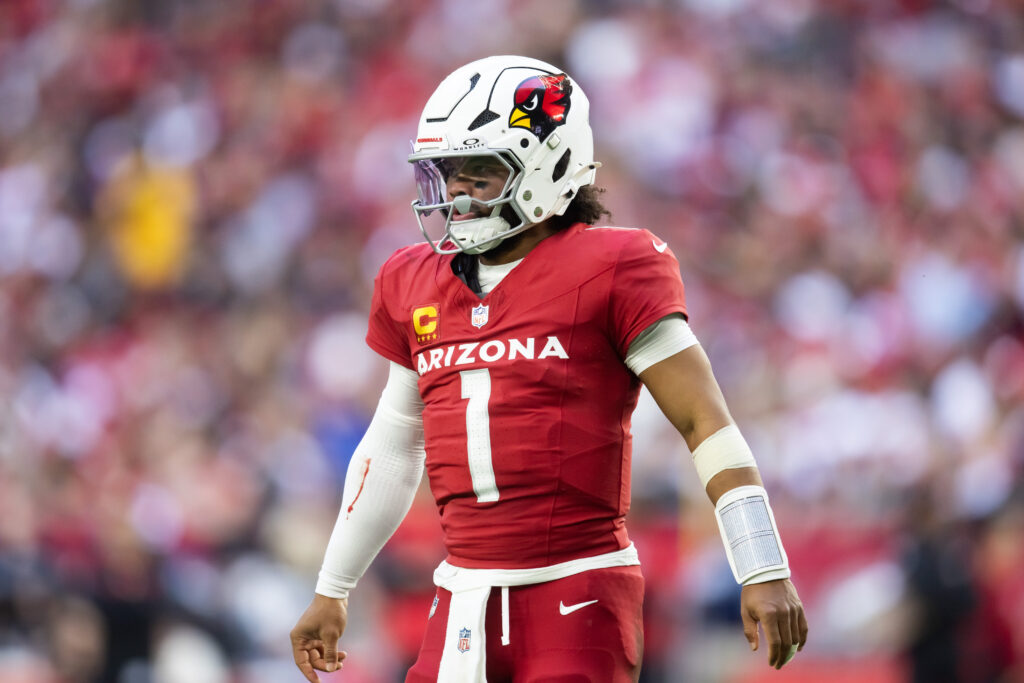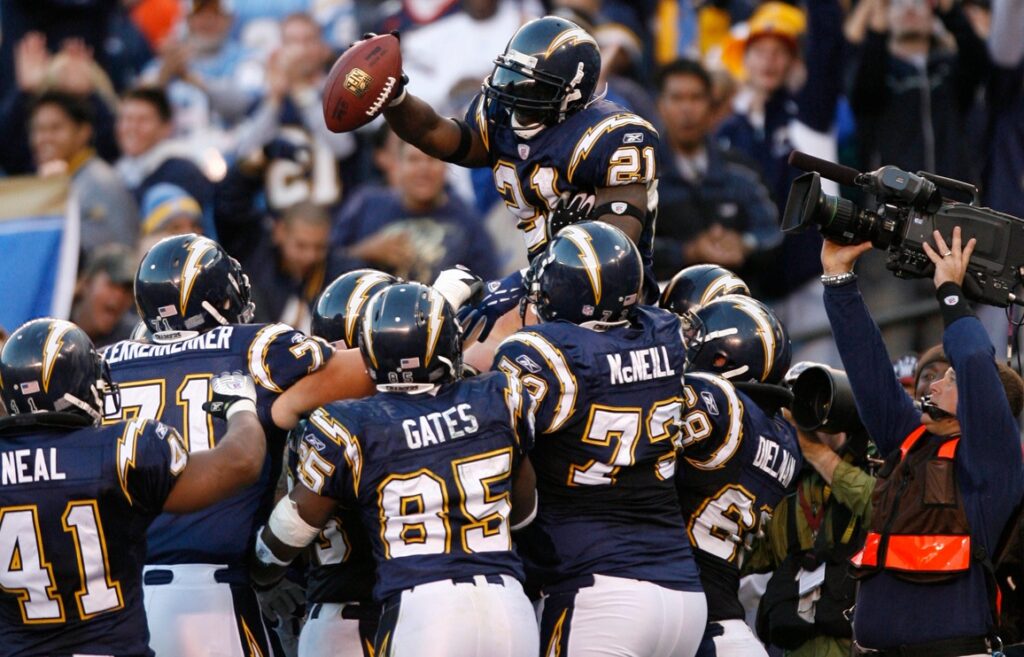The 2000s gifted the National Football League (NFL) with a group of exceptional offensive linemen who made a significant impact on the game. Undeniably, these athletes were the unsung heroes of their respective teams, contributing significantly to their success and glory.
3 Dominant Offensive Lineman of the 2000s
Steve Hutchinson
Steve Hutchinson, a guard for the Seattle Seahawks, was an embodiment of intelligence and raw strength. His presence on the field was akin to having an extra mastermind, guiding the team with his strategic insights. Recognized for his expertise, he earned a spot in the Pro Bowl seven times.
Former Seahawks coach Mike Holmgren said, “Just as Walter Jones was the best tackle I ever saw, Steve Hutchinson was the best guard.”
During his career, the lineman was involved in more than 70 individual 100-yard rushing games. He provided blocking for Shaun Alexander, who won the MVP award in 2005, as well as for Adrian Peterson, who ran for an NFL-record 296 yards and won Offensive Rookie of the Year in 2007.
Players respected him too. “Man, Steve was massive out there. I mean, it was tough to get around him, and he was so patient and strong,” said former Vikings defensive tackle Kevin Williams, a five-time All-Pro himself.
Steve Hutchinson’s legacy in the NFL is undeniable, setting a standard for future offensive linemen to aspire towards.
Alan Faneca
Alan Faneca, a formidable guard for the Pittsburgh Steelers, was a linchpin of their offense due to his exceptional blocking skills. Throughout his 13-season NFL career, Faneca was a standout player, earning nine Pro Bowl selections and being named a six-time first-team All-Pro and a two-time second-team All-Pro. He played for the Steelers for 10 years from 1998-2007, contributing to the team’s Super Bowl XL victory. Faneca’s achievements include being named to the NFL’s 2000s all-decade team and the Steelers’ All-Time Team.
Comparing him to Will Shields and Larry Allen when asked about Faneca, Former Pittsburgh Steelers offensive line coach Mike Munchak said “He had a very similar career in the same amount of time, so I’m real excited for him. I’m glad I got a chance to know him, but more importantly, I got a chance to watch him play, and just, one of the best players to ever play the position.”
Orlando Pace
Orlando Pace, a key figure of the St. Louis Rams‘ “Greatest Show on Turf” era, was elected first overall by the Rams in the 1997 NFL Draft, Pace spent the majority of his professional career in St. Louis, with a brief stint as a member of the Chicago Bears.
Pace was the cornerstone of the Rams’ offensive line, paving the way for one of the most prolific offenses in NFL history. The Rams’ passing offense consistently exceeded 3,000 yards per season, with seven different quarterbacks achieving this milestone. But Pace’s contributions extended beyond pass-blocking; seven players rushed for over 1,000 yards behind him. Notably, he played a significant role in the success of three consecutive league Most Valuable Player (MVP) recipients: Kurt Warner (1999, 2001) and Marshall Faulk (2000).
Throughout his career, Pace earned seven Pro Bowl selections and was thrice recognized as a first-team All-Pro. His impact was instrumental in the Rams’ Super Bowl victory in Super Bowl XXXIV, which marked the franchise’s first title. In honor of his remarkable achievements, Pace was inducted into the College Football Hall of Fame in 2013 and the Pro Football Hall of Fame in 2016.
As coach John Cooper once put it: “People ask me all the time, who’s the best I’ve ever coached? And I would be hard-pressed to tell you that I had somebody that was better than an Orlando Pace.
These are three of the dominant offensive linemen of the 2000s. The imprint they’ve left on the game serves as a benchmark for aspiring athletes and reshapes our understanding of the sport. As we look ahead, the question remains: Who will carry the torch of these legendary linemen into the new era of the NFL?
Main Image: Anne Ryan, USA TODAY, USA TODAY via Imagn Content Services, LLC



